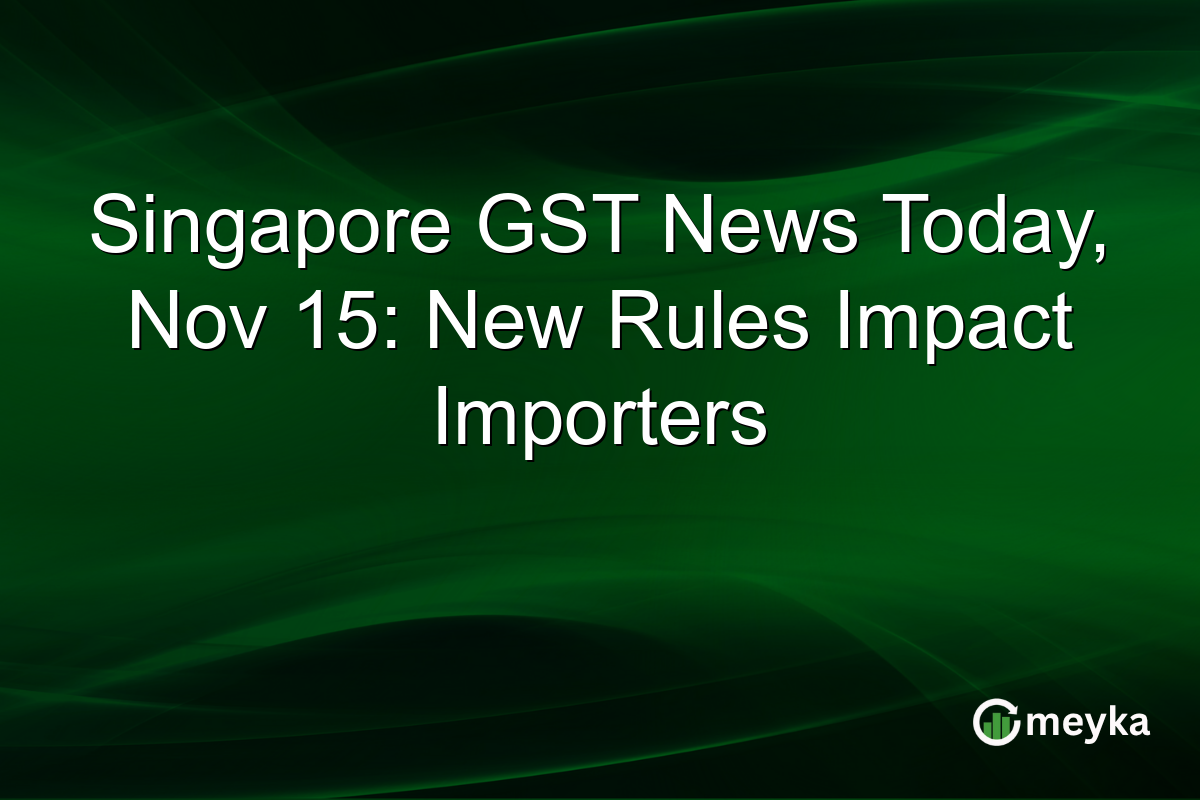Singapore GST News Today, Nov 15: New Rules Impact Importers
On November 15, 2025, Singapore implemented significant changes to its GST regulations, specifically targeting imported low-value goods. These changes, part of the broader ‘Singapore GST changes 2025,’ aim to streamline and clarify tax obligations. This update affects both businesses and consumers, as it’s crucial to understand the implications of double GST payments. With Singapore as a major hub in international trade, these adjustments are set to have notable impacts.
Continue Reading on Meyka
This article is available in full on our main platform. Get access to complete analysis, stock insights, and more.
Read Full Article →





